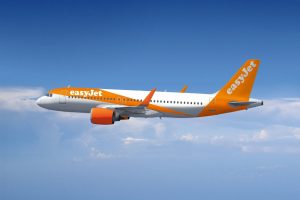Back HS2 or face civil war, Labour city leaders warn Miliband

BIG city Labour Party leaders, including Birmingham City Council’s Sir Albert Bore, have warned the national party leadership that it faces open warfare if it doesn’t back HS2 in the run up to the next election.
The Labour opposition, led by Ed Miliband, has seemingly gone lukewarm on the high-speed rail project which will link London and Birmingham via 225mph trains despite the fact it was instigated when it was in government. It has said there can be no “blank cheque” for HS2.
Birmingham City Council leader Sir Albert Bore – who is the transport spokesman for the Core Cities Group, which includes Birmingham, Bristol, Leeds, Liverpool, Manchester, Newcastle, Nottingham and Sheffield – has written to party leaders on their behalf.
In a letter to shadow transport secretary Mary Creagh, Sir Albert said: “If the party continues to put out such a negative message on HS2 I will be concerned that there will be a protracted public conflict between the party leadership and the Labour led core cities at a time when we should be working closely together to develop a winning campaign for 2015.”
News of the letter came on the same day that the Government reiterated the case for pressing on with the high-speed rail scheme, following a period of intense criticism for the project.
But although there are a host of positives for the Midlands, the Government may struggle to convince a more sceptical national public of its merits as it has downgraded its prediction for the amount of economic benefit the scheme will bring to the UK.
It now says it expects benefit-cost ratio (BRC) to be £2.30 in benefits for every pound spent. Its previous estimate was £2.50.
That fall is mainly due to a £10bn rise in the scheme’s projected cost, which was added earlier this year. Originally it was said the scheme would cost £33bn but it was revised upwards to £42.6bn.
As predicted, the latest report – The Strategic Case for HS2 – has revised an earlier assumption that business people do not get much work done on trains, a view that was widely disputed.
The new study has cut by one-third the value put on saving an hour’s worth of time getting between meetings or workplaces on a quicker train, to reflect that productive work is also done while travelling.
Transport secretary Patrick McLoughlin was making the case for HS2 following intense criticism of the project from numerous quarters including the Institute of Directors and former Labour government ministers Alistair Darling and Peter Mandelson.
Meanwhile, the Government admits that the largest rewards from HS2 will go to the Midlands and the North of England.
Perhaps unsurprisingly then Midlands business leaders have welcomed this latest report.
Commenting on the Department for Transport report, Geoff Inskip, chief executive of regional transport authority Centro, said it not only showed high speed rail to be good value for money but also its ability to provide badly needed capacity for Britain’s rail network.
Speaking yesterday, he said: “Today’s report shows how important it is to press on and build HS2 to deliver jobs and investment and to address soaring demand for rail travel in the West Midlands.
“We have a tremendous opportunity to take advantage of our location at the heart of the network, delivering fast direct services from the West Midlands to the UK’s major cities and Europe, as well as increasing local, regional and freight services.”
Jerry Blackett, chief executive of Greater Birmingham Chambers of Commerce, said: “The updated benefit to cost ratio (BCR) shows that HS2 delivers high value for money and will generate more than £2 for every £1 invested.
“There is a significant chance that returns could be considerably higher than this and is almost the same as that for Cross-Rail. So a good investment.
“The alternative to HS2 of upgrading the existing line has already been estimated to cost £20bn with associated delays to allow the work to take place amounting to the equivalent of 14 years of weekend route closures.
“And it is now estimated that by 2026 40% of travellers on InterCity trains will standing on arrival in London. This is clearly unacceptable for Midlands industry.
“Passenger growth assumptions vary between 1.8% and 2.2% a year in the BCR analysis. So these are very conservative when related to current growth of between 5-6% annually.
“It is encouraging that the BCR analysis follows the formal DfT methodology so it should be regarded as extremely robust.
“Today’s report shows that the 14 years of weekend closures will deliver only a fraction of the additional capacity which proves that HS2 is the only long-term solution to Britain’s future transport needs.”
Under existing plans, work on HS2 would proceed in 2016 and London and Birmingham would be linked by 225mph trains by 2016. Links north to Leeds and Manchester would come on stream six years later.









